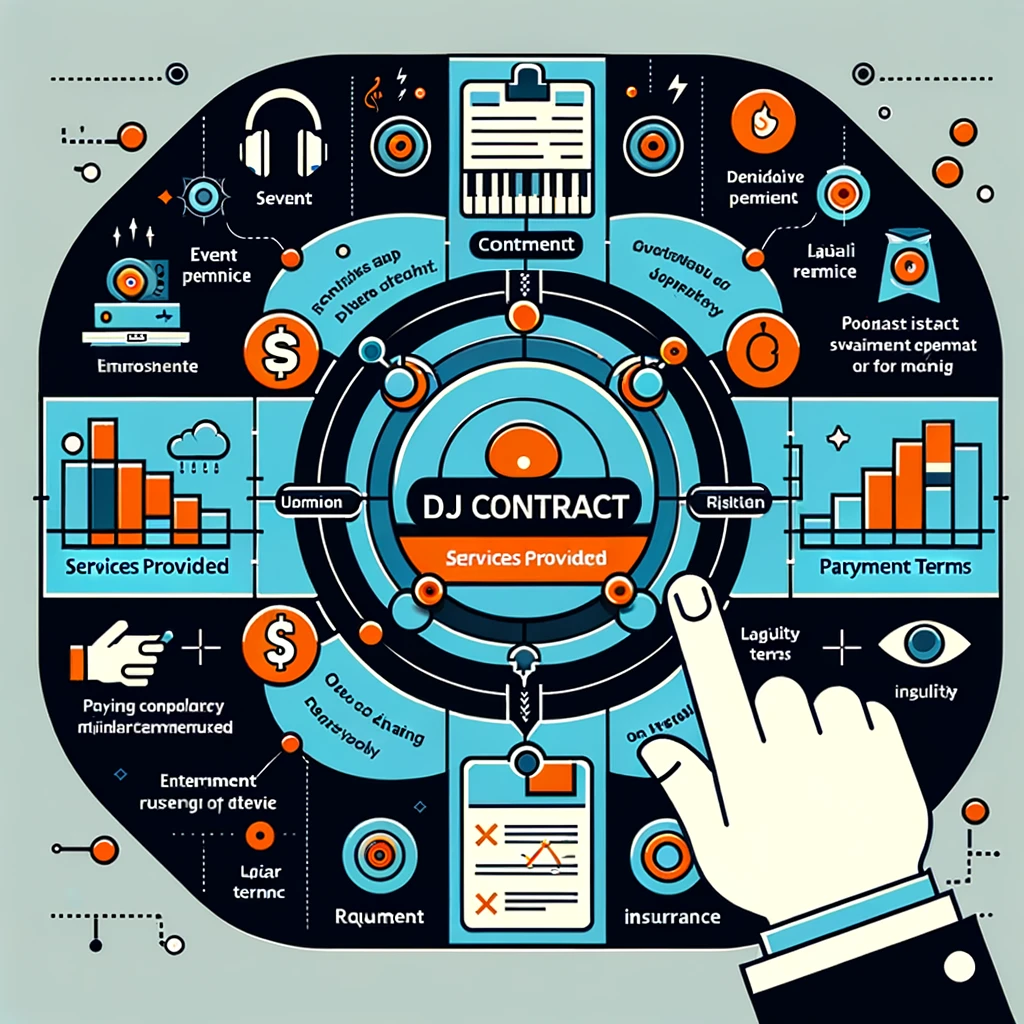The Ultimate Guide to DJ Contracts: Ensuring a Smooth Performance
When planning an event, whether it's a wedding, corporate event, or private party, hiring a DJ can significantly enhance the experience. However, to ensure everything runs smoothly, it's crucial to formalize the arrangement with a DJ contract. This document not only protects both the DJ and the client but also outlines the expectations and requirements of the event. In this guide, we'll explore the key components of a DJ contract, best practices for creating one, and where to find templates and legal advice.

Understanding DJ Contracts
A DJ contract is a legally binding agreement between a DJ (or DJ service provider) and a client, detailing the services to be provided, performance details, payment terms, and other essential conditions.
Key Components of a DJ Contract
Event Details: Date, time, location, and duration of the performance.
Services Provided: Specifics of what the DJ will provide, including equipment, playlist curation, and MC duties.
Payment Terms: Total cost, deposit amount, cancellation policy, and final payment due date.
Technical Requirements: Power supply, stage or space requirements, and sound system specifications.
Liability and Insurance: Clauses covering equipment damage, liability insurance, and responsibility for lost or stolen items.
Wikipedia offers a broad overview of what contracts are and their legal implications, which can be helpful for understanding the basics.
Crafting a DJ Contract: Best Practices
Creating a DJ contract doesn't have to be daunting. Following best practices can help ensure that all parties are protected and expectations are clear.
Clarity is Key
Ensure that the contract language is clear and straightforward, avoiding legal jargon that might confuse either party. Details about the event and services should be explicitly stated to prevent misunderstandings.
Be Comprehensive
Cover all bases by including all possible scenarios and how they should be handled, such as equipment failure, illness, or event cancellation policies.
Consult Legal Resources
While many templates and resources are available online, consulting with a legal professional can provide peace of mind and ensure that your contract is enforceable. Educational resources, such as Cornell Law School's Legal Information Institute, can offer valuable insights into contract law.
Finding DJ Contract Templates
Numerous websites and platforms offer DJ contract templates that can be customized to fit specific needs. While these templates provide a good starting point, it's important to review and adjust them according to your event's unique requirements.
Utilizing Professional Associations
Professional DJ associations often provide members with contract templates designed to meet industry standards. These templates can be a reliable resource, as they're typically vetted by legal experts.

Create & Review Your Contracts 10x Quality and Ease
Lawyer-level AI handles all your contract needs, with real lawyers providing safeguarding support

Online Legal Services
Platforms like Rocket Lawyer and LegalZoom offer customizable contract templates, including DJ contracts. These services may also offer consultations with legal professionals to review the contract before finalization.
Conclusion
A well-crafted DJ contract is essential for ensuring a successful event. By clearly outlining the terms of the performance, payment, and responsibilities of both parties, a DJ contract can help prevent potential disputes and ensure that the event goes off without a hitch. Remember to consult with legal professionals or utilize reputable resources to create a contract that meets your specific needs.
Remember, while templates and guides are helpful, the specifics of your contract may vary based on your location, the nature of the event, and the services provided. Always tailor your contract to suit your particular situation.

